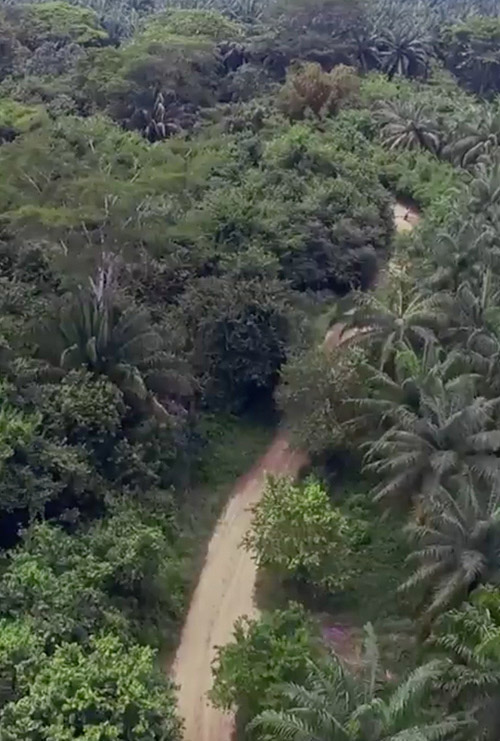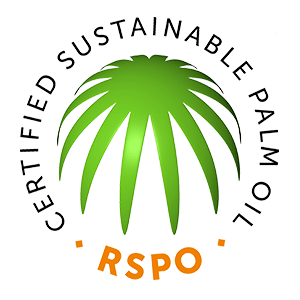TRANSFORMING A TROUBLED INDUSTRY
“We believe that environmental destruction can only be reversed if businesses step up and lead the way. Historically, corporations have done the most damage to the earth, while profiting the most from her resources. This kind of injustice can’t go on. Which is why Daabon is out in front of the movement to clean up the palm oil industry.” Our goal is not just to stop doing damage to the environment, but to actively improve the health of our native ecosystems and the planet as a whole.
“We must take care of what we have and care for nature. Nature is life.”

No Slash & Burn, Ever
As part of our self-imposed commitments to reducing greenhouse gas emissions, Daabon’s operations are completely deforestation-free. We only farm on land that has been previously cleared, and we never clear or cultivate peatlands, the natural carbon sinks that conventional palm oil operations often destroy thereby releasing massive amounts of CO2 into the atmosphere.
Protecting The Land
We farm without the use of toxic chemical pesticides or genetically modified organisms (GMOs). Any plant-matter from the palm fruit milling process that we can’t convert into a commercial product becomes feed for animals and fertilizer for the palm trees themselves. In the same spirit of long-term sustainability, our palm oil mill in Colombia captures and treats our wastewater, turning waste into a renewable biofuel that powers the facility and feeds energy back into the grid. We’re very careful to preserve habitats and protect beloved animal species like the anteaters who roam our palm farms.


Renewable Energy and Carbon Neutrality
Daabon utilizes renewable energy sources wherever possible, including the methane-recapture plant at our main palm oil mill, where we create a clean biofuel from the mill’s wastewater, purifying the water and creating a new, green energy source in the process. In 2015 we met our goal to be carbon neutral across every aspect of our global production processes.
Colombia is the second most biodiverse country in the world, and Daabon does everything possible the protect it and the rest of the world by never using toxic chemicals and being carbon-neutral.
Protecting Native Species
Being headquartered in the stunning natural beauty of the Santa Marta region of Colombia, we’re lovers of nature ourselves. We were the first certified organic palm oil company ever to be certified sustainable by the Rainforest Alliance. We’re very careful to preserve habitats and protect beloved animal species like the anteaters who roam our palm farms. Protecting all rare, threatened or endangered species living on our land is a major priority to us, including armadillos, poison arrow frogs, grey-handed night monkeys, several species of birds, and numerous species of plants.

RSPO, SPOTT & POIG
Setting a new standard for sustainability
RSPO
Certified Sustainable Palm Oil is a designation awarded by the Roundtable on Sustainable Palm Oil (RSPO), an organization formed by stakeholders from across the palm oil industry to promote and support sustainable production methods. RSPO certification requires that no primary forests or high conservation value areas (places of cultural or environmental significance) can be cleared. It also restricts the use of pesticides and fires, and addresses labor rights for workers.
SPOTT
The Sustainable Palm Oil Transparency Toolkit, also known as SPOTT, is an independent assessment program developed by the Zoological Society of London to rate palm oil producers on environmental and social responsibility. SPOTT covers important issues like greenhouse gas emissions, deforestation, impact on local species, land management, water use, and dedication to human rights. Daabon has been top rank since 2014.

RSPO
Certified Sustainable Palm Oil is a designation awarded by the Roundtable on Sustainable Palm Oil (RSPO), an organization formed by stakeholders from across the palm oil industry to promote and support sustainable production methods. RSPO certification requires that no primary forests or high conservation value areas (places of cultural or environmental significance) can be cleared. It also restricts the use of pesticides and fires, and addresses labor rights for workers.

SPOTT
The Sustainable Palm Oil Transparency Toolkit, also known as SPOTT, is an independent assessment program developed by the Zoological Society of London to rate palm oil producers on environmental and social responsibility. SPOTT covers important issues like greenhouse gas emissions, deforestation, impact on local species, land management, water use, and dedication to human rights. Daabon has ranked #1 on the list since 2014.



